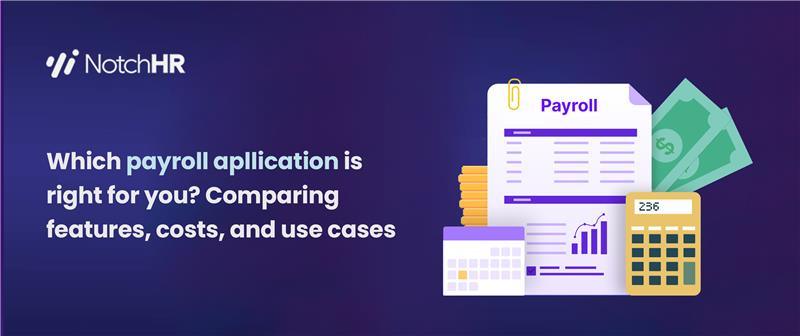In every organization, conflict management plays a crucial role in fostering a productive and harmonious workplace. Effectively managing grievances and disciplinary issues builds trust among your team, preventing conflicts that could negatively impact morale. By addressing these situations fairly, transparently, and in compliance with legal requirements, you create a foundation for long-term success in your organization.
In this article, we guide you through the most effective strategies for Conflicts Management and disciplinary actions, ensuring positive outcomes for both your employees and your business.
What Is Conflict Management?
Conflict management is the process of identifying, addressing, and resolving complaints employees raise about workplace issues. These grievances could involve interpersonal conflicts, unfair treatment, dissatisfaction with management policies, or more serious matters like harassment or discrimination.
By managing grievances effectively, you ensure that employee concerns are heard, taken seriously, and resolved quickly, which helps foster a positive work culture.
Why Managing Grievances is Important
- Improves Employee Morale: When you acknowledge employee concerns, they feel valued and respected.
- Reduces Turnover: Timely grievance resolution can prevent employees from leaving due to unresolved issues.
- Avoids Legal Repercussions: Proper grievance management minimizes the risk of legal action against the organization.
- Fosters a Positive Workplace: A culture of fairness and transparency strengthens employee trust and engagement.

Steps to Effectively handle Conflict Management
Create a Clear Grievance Policy
- Develop a transparent grievance policy that outlines how employees can raise concerns and how management will address and resolve them.
- Make sure employees can easily access this policy through your company handbook, HR portal, or internal communications.
Encourage Open Communication
- Build trust by encouraging open communication, allowing employees to report grievances early before they escalate.
- Regular check-ins and fostering a culture of transparency help employees feel comfortable speaking up.
Acknowledge and Investigate Grievances Promptly
- Acknowledge the employee’s complaint quickly and start an investigation to determine the facts.
- Conduct a thorough and unbiased investigation, including interviews with all relevant parties.
Ensure Confidentiality
- Reassure employees that their grievances will remain confidential and that you will not disclose unnecessary details to unrelated parties.
- Keep clear communication with the employee throughout the grievance resolution process.
Train Managers and Supervisors
- Equip managers and supervisors with the skills to handle grievances professionally, including conflict resolution, effective listening, and eliminating bias.
- A well-trained managerial team can prevent many issues from escalating.
Provide Fair and Objective Solutions
- Offer fair and impartial solutions after thoroughly investigating the complaint, balancing the interests of both the employee and the organization.
- Ensure that any necessary disciplinary action aligns with your organization’s policies and complies with the law.
Follow Up
- After resolving the grievance, follow up with the employee to confirm their satisfaction with the outcome. Continuous communication prevents future issues and reinforces trust.
What Is Disciplinary Action?
Disciplinary action involves corrective measures taken when an employee violates company policies or displays unacceptable behavior. While necessary at times, disciplinary actions should be handled sensitively to avoid damaging the relationship between employer and employee.
Importance of Fair Disciplinary Action
- Ensures Accountability: Proper disciplinary actions maintain workplace order by holding individuals accountable for their behavior.
- Promotes Consistency: Fair processes ensure that similar infractions are treated similarly, reducing perceived favoritism.
- Reduces Legal Risks: A structured disciplinary approach ensures compliance with labor laws and reduces the risk of wrongful termination claims.
Steps to Effectively Manage Disciplinary Actions
Define Clear Policies and Expectations
- Just like with grievances, clarity is key. Clearly outline what constitutes misconduct and the potential consequences.
- Communicate these policies to all employees during onboarding and reinforce them regularly through training and company-wide updates.
Conduct a Fair Investigation
- Before taking any disciplinary action, conduct a thorough investigation. Gather evidence, speak to witnesses, and give the employee a chance to share their side.
- Avoid assumptions and base decisions on facts.
Follow a Progressive Discipline Model
- Apply corrective measures with increasing severity, starting with verbal warnings, then written warnings, suspension, and, if necessary, termination.
- This approach gives employees a chance to improve before facing serious consequences.
Document Everything
- Keep a record of every warning, conversation, and piece of evidence related to the case.
- Proper documentation protects your organization if the situation escalates to legal action.
Maintain Consistency
- Ensure that disciplinary actions are applied consistently across the organization. Avoid favoritism or unfair treatment, as this can damage trust and expose your organization to discrimination claims.
Provide Support for Improvement
- Whenever possible, pair disciplinary actions with opportunities for improvement. Offer coaching, additional training, or other resources to help employees correct their behavior.
- This approach not only resolves the issue but also supports employee growth and retention.
Conclusion
Managing employee grievances and disciplinary actions effectively is crucial for maintaining a harmonious and productive workplace. By establishing clear policies, maintaining open lines of communication, and applying disciplinary measures fairly, organizations can foster a culture of trust, accountability, and respect.
Looking for a streamlined solution to handle conflict management and disciplinary actions? NotchHR offers a comprehensive Grievance and Disciplinary Management feature that allows HR teams to address employee concerns efficiently, document issues, and ensure compliance with company policies. Get started today to enhance workplace harmony and improve overall employee satisfaction.



